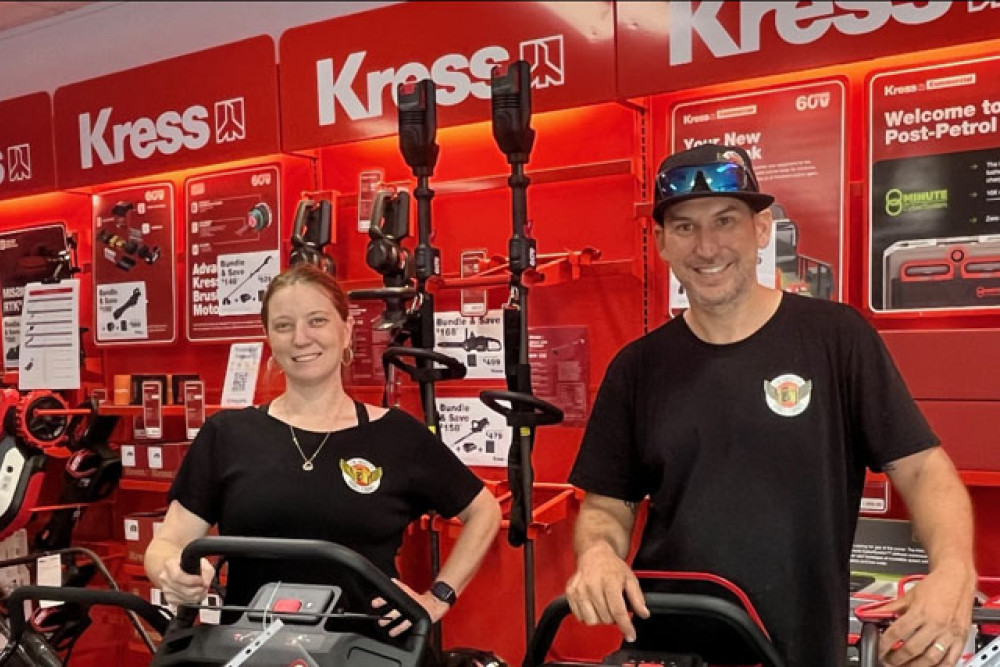General News
20 November, 2024
Time to check generators
AS cyclone season approaches in Far North Queensland, the risk of power outages becomes a reality for many households and businesses.

Sharni and Steven Green of Freshwater Small Engines said owning a generator could be a game changer, but to ensure it works when you need it most, proper maintenance and safe operation were essential.
“Generators provide back-up power when the grid goes down, especially during cyclones or severe weather events,” they said.
“However, small engines are designed to run regularly. Generators that sit unused for long periods may develop issues. Proper maintenance and regular use ensure they are ready to go when you need them most.
Key maintenance tips
Check the fuel. In Far North Queensland’s tropical climate, fuel degrades quickly. Fuel stored in jerry cans can begin to go off after 30 days, leading to poor performance or engine blockages. Always ensure you’re using fresh fuel from the pump. For extended fuel storage, consider using a fuel stabiliser, which can significantly slow fuel degradation, keeping it fresh for longer. To learn more about fuel degradation and how it impacts your generator, read our blog post ‘understanding fuel degradation’.
Run your generator monthly. To keep your generator in good working order, run it for 10-15 minutes on the first of every month with an electrical appliance plugged in. This not only exercises the engine but also allows you to spot any issues before cyclone season begins. Using fresh fuel, and rotating stored fuel, will prevent stale fuel from causing problems.
Schedule an annual service. If your generator is only used for emergencies, it’s recommended to have it serviced once a year. Regular servicing helps prevent seals from drying out, burns off accumulated moisture, and keeps internal components lubricated. Proper ventilation and safe placement. When operating your generator, always place it at least 7m away from your home, keeping it away from windows, doors, and vents to avoid carbon monoxide poisoning. Ensure at least 1m of clear space around the generator to allow proper ventilation. Never use a generator in enclosed spaces like garages or sheds.
Use the right power cords. Always use grounded extension cords when connecting appliances to the generator. Inspect cords for damage before each use and ensure they are rated for the wattage you’ll be drawing. Overloading cords can result in overheating or electrical fires, so make sure you’re using cords suitable for the load.
Start and stop the generator safely. Always start and stop your generator when no electrical loads are connected. This prevents sudden surges that can damage both the generator and your appliances. Once the generator is running, plug in your appliances one at a time, avoiding overloading the system.
Visit Freshwater Small Engines Facebook page.


